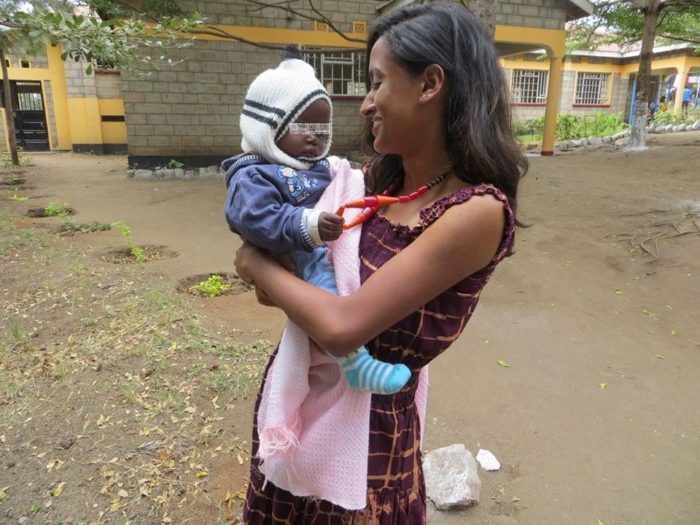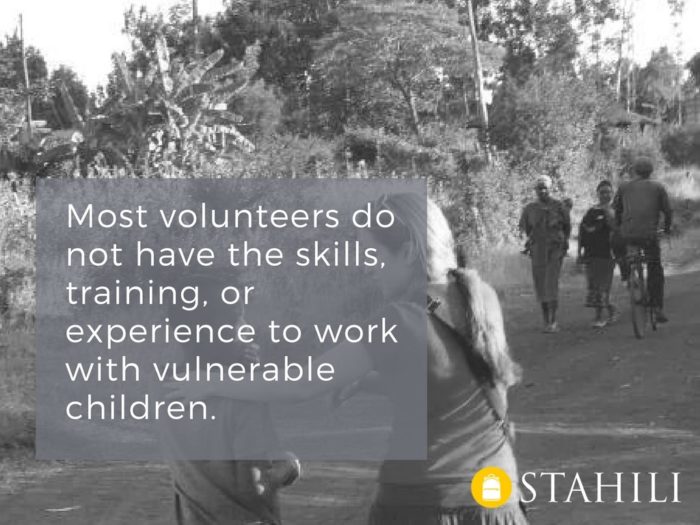Evolving into a Responsible Volunteer

Three years ago, I became a volunteer tourist, better known as a “voluntourist”. It was also the year I learned an important lesson: A responsible volunteer is the key to bringing about meaningful change.
I had been at the Kenyan non-profit organization for about two months, when groups of volunteers from Canada and the US began to arrive for visits which lasted anywhere from two days to two weeks.
During the orientation tour, I had been informed that the duration of my three-month internship would be spent at one of the organization’s largest homes which houses and educates about 600 children, described as having been rescued from the streets, orphaned, destitute, and abused. I was assigned the duties of a teacher and a social worker, despite having neither experience nor a completed background check.
I remember one particular night when dinner had just been served and the voices of volunteers, who had recently arrived at the organization, could be heard describing the events of their day. As I sat down, I overheard one of the volunteers expressing her disappointment at not having had the opportunity, as she had on her previous visit to the organization, to hear the children sing and give testimonies.
As I was finishing my dinner, I heard footsteps on the gravel, signaling the arrival of about twenty children. The children lined up in choir formation, and began to sing. I looked around at the volunteers, who had already started pulling out their cameras in excitement. After the first song had ended, a girl who looked to be thirteen stepped forward and began recounting how her financial circumstances had led her to become a victim of sexual violence. Two more songs were sung and another two children in the choir recounted similarly horrific events from their past. As the children finished singing, the audience clapped and the children went back to their rooms. I heard some of the volunteers praising what they had just witnessed, while others were checking their cameras to ensure they had captured the events of the night.
At first I was angry with the volunteers, who had no right to possess these personal narratives, let alone turn the evening into a theatrical performance. The feeling of anger was soon replaced by a sense of awareness that I had also contributed to this demand, which subjects children to re- traumatization. However, unlike the other volunteers, my two months with the children had enabled me to recognize that the children were reciting their narratives as if the words no longer held any meaning. This sense of obligation to tell their narratives, just like they had done for me in the past, led me to realize that I too was a volunteer tourist.

Volunteer tourism is a growing phenomenon where organizations attract mostly young volunteers, who are not qualified to do humanitarian work, by preying on their good intentions in exchange for profit. This has led organizations such as Stahili and UNICEF to campaign against this phenomenon.
Looking back on my experience, there are six lessons I would share with anyone thinking of volunteering:
Before volunteering abroad, ask questions to determine whether you are qualified to do the assigned position.
Inquire into the type of work and experience previous volunteers have had at the organization by researching online.
Ensure the organization requires all volunteers to undergo a background check. You don’t want to be part of an organization that doesn’t protect children from potential harm, even if you personally don’t pose a risk.
Choose an organization that is financially transparent and accountable. Paying for an experience abroad without understanding how the money impacts local communities and how the money could be used more effectively can cause more harm.
Don’t take short volunteering trips, especially when working with children. Create sustainable lasting change.
Ask yourself honestly if this is just part of a travel experience as children are not tourist attractions.
Since returning from my trip, each new volunteering opportunity has become a step towards my evolution as a responsible volunteer. I’m hoping to someday go back to Kenya, only next time I won’t be that volunteer tourist who views children as mere testimonies. In the meantime, initiatives like Stahili are reminders that the serious consequences of volunteer tourism demand a continuous dialogue between volunteers and organizations to address serious issues such as orphanages.
By Mandip Grewal